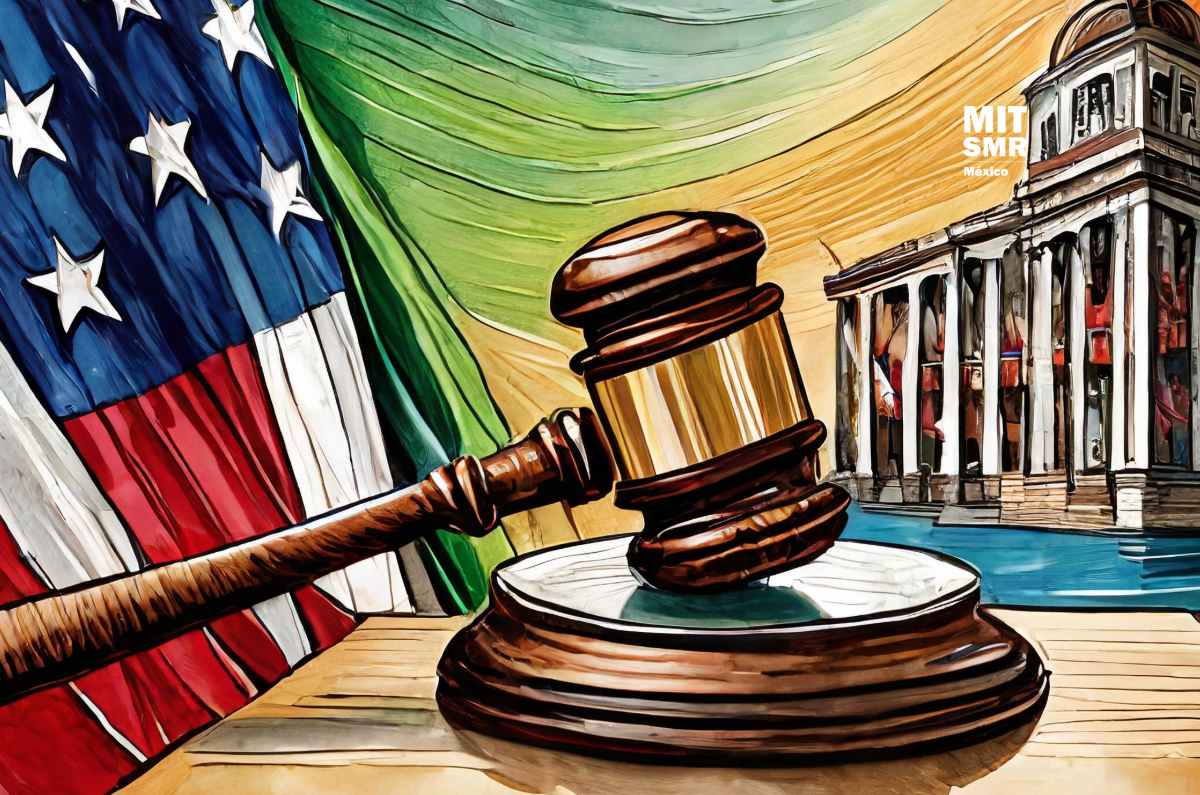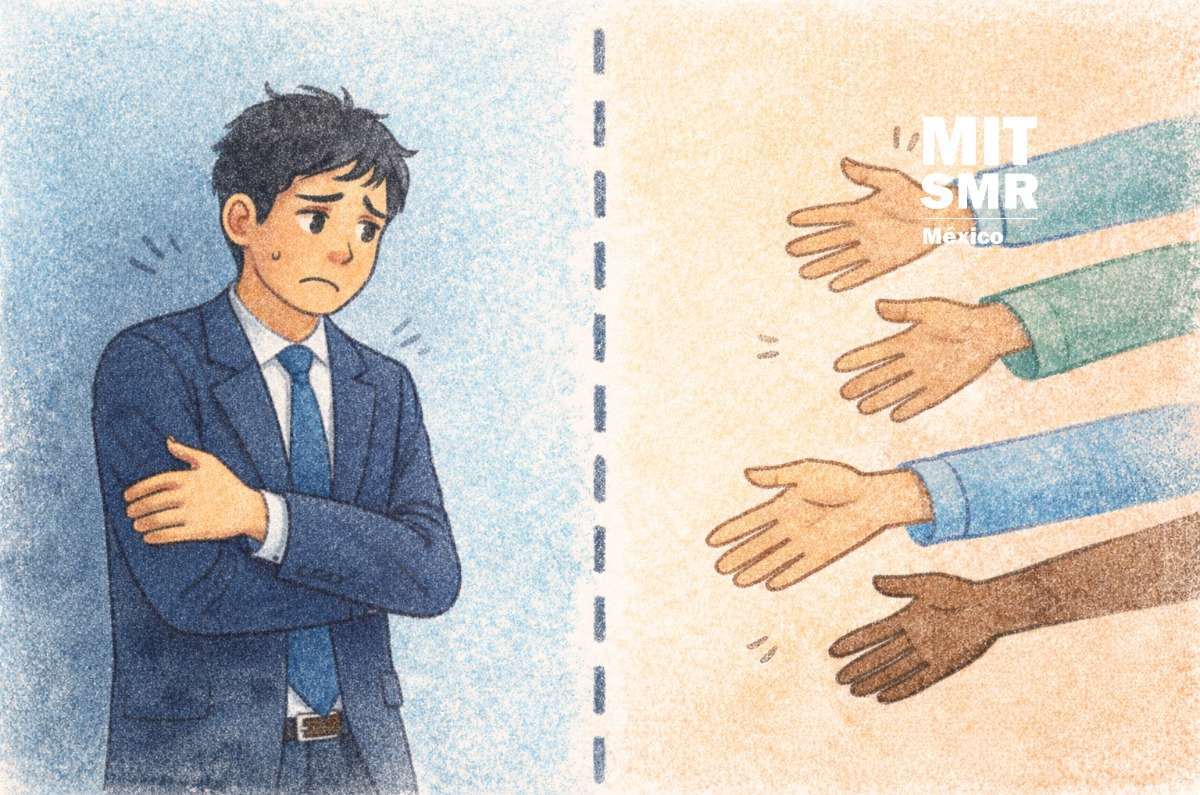If we could elect the Supreme Court, could we have avoided that? Can it help make the Justices more accountable? Is it right to do so? Let’s analyze what it could mean for Mexico.
Judicial reform has been a hot topic in the United States and Mexico. Even though judicial reform is being advocated for different reasons, both countries share a desire to popularly elect their Supreme Court.
In the U.S., the topic has mostly centered on scrutiny of the conservative-leaning Supreme Court for recent decisions that most Americans believe favor ideology over impartiality, as revealed in a recent Gallup poll.
It’s hard to disagree with that opinion. This Supreme Court’s decisions reinforce that belief, from the overturning of Roe v. Wade -which guaranteed the right to an abortion and had been precedent for more than 50 years- to the recent ruling favoring former president Donald Trump that granted presidential immunity from prosecution for officials acts.
In Mexico, outgoing President Lopez Obrador and President-elect Sheinbaum have argued that it is necessary to create a more transparent, independent, and accountable justice system that is not tied to long-standing institutions.
Are these sincere arguments or are they proposing these changes to consolidate Morena’s power? Many in Obrador’s circle of influence, including his sons, are under the threat of investigations for contract scheming and illicit enrichment (so what’s new, right?).
Electing judges who would blindly favor your political agenda seems very convenient when you are at the peak of your power.
The Politics of Avocados and the Economic Ties of the U.S. and Mexico
The Supreme Court is not exempt from political influence
Supreme Court Justice Clarence Thomas’s failure to disclose numerous luxurious gifts and trips funded by a wealthy Republican donor exposes the influence of politics in the U.S. Supreme Court.
For more than 20 years, Justice Thomas enjoyed and failed to report lavish island vacations that included private jets and meetings with some of America’s most powerful businessmen. He also borrowed hundreds of thousands of dollars from donors to buy things like an R.V.
Then we have the blatant political favoritism displayed by Justice Samuel Alito and his wife by flying an upside-down American flag on their front lawn after President Biden’s inauguration in January 2021.
I can relate to Justice Alito’s sentiment. My father proudly flew an upside-down American flag on our lawn for years after Donald Trump won the 2016 election. Flying an upside-down American flag is a sign of distress, and my father argued that he flew it because it was a sign of “the beginning of the end” of our democracy. He was right, and the politics of the Supreme Court are playing a lead role.
A high probability of being confirmed
Should we be surprised that this conservative court rules in favor of cases that favor the Republican Party’s agenda or Donald Trump? No, after all, justices are appointed by the ruling president, and rarely has a nominee failed to be confirmed by the U.S. Senate (regardless of which party holds the majority).
Justice Thomas had to deal with a sexual harassment claim by Anita Hill during his nomination and was confirmed. More recently, Justice Kavanaugh had to deal with allegations of sexual assault and alcohol abuse and was also confirmed.
In his confirmation hearing Justice Kavanaugh even hinted at respecting the precedent set by Roe v. Wade, but in the end, he ignored it and ruled in favor of his party’s ideology. As history would have it, President Donald Trump had the unique opportunity to appoint three justices to the Supreme Court and shift the judicial balance of power for years to come which would have tremendous social ramifications.
He appointed Justices Neil Gorsuch (after the death of Antonin Scalia), Brett Kavanaugh (replacing retired Anthony Kennedy), and Amy Coney Barrett (after the death of Ruth Bader Ginsburg). Losing Justice Ginsburg’s seat cost Democrats the critical deciding vote.
The law should be above politics, except it isn’t
Term limits or electing the Supreme Court Justices are some of the proposed ideas when discussing reforms to the U.S. judicial system. These ideas gain traction when the Supreme Court’s opinions differ vastly from those of the general public, or when political parties get tired of unfavorable decisions to their political ideology.
Let’s take abortion as an example, in a recent Pew Research Center poll, 63% of U.S. adults say abortion should be legal in all or most cases, while only 36% say it should be illegal. But that didn’t matter to the court. They had an agenda to fulfill, they needed to grant the Republican Party a victory, and they needed to justify why President Trump appointed them.
President Trump didn’t win the popular vote on his way to the White House in 2016; he won the right states to reach the magic number of Electoral College votes to claim victory. This translated to a small number of states dictating the foreseeable judicial future of America, and this upcoming election will not be any different. The law should be above politics, except it isn’t.
If we could elect the Supreme Court, could we have avoided that? Can it help make the Justices more accountable? Is it right to do so? Let’s analyze what it could mean for Mexico.
¿Qué es el Plan C de AMLO que ejecutará Sheinbaum? Conoce sus controversias
Mexico’s judicial experiment
In theory, the Supreme Court is appointed and not elected because it is supposed to be an impartial institution, not a political one.
There’s a danger to democracy when the Supreme Court fails to reflect the will of the people, but there’s also a danger when it rules based on political ideologies. Mexico is currently being confronted with this scenario, but unlike the U.S., it is poised to do something about it – at least try.
Mexico’s judicial reform would allow for the election of all federal judges and magistrates, including its Supreme Court, Judicial Council, Electoral Tribunal, and create a “Disciplinary Tribunal” that would oversee the actions of the Supreme Court.
It would also place an age limit on Supreme Court Justices (that doesn’t seem like such a bad idea in the U.S.). Mexico’s proposal would also cut the number of Supreme Court seats from 11 to 9, consolidating the power of its members.
These are a bold set of reforms and will be enacted as early as September of this year, shortly after President-elect Sheinbaum’s inauguration.
The alliance of the once-ruling PRI, the conservative PAN, and what was formerly Lopez Obrador’s party, the PRD, was powerless against Morena. Claudia Sheinbaum obtained slightly over 60% of the vote, beating her closest opposition by more than 30 points.
Morena also achieved a super-majority in Congress winning 372 seats, well above the 334-seat threshold, and they fell two seats short of winning the super-majority in the Senate.
Opponents of Mexico’s judicial reform argue that this is “the beginning of the end” of Mexico’s democracy and that Morena is transforming into a 21st-century version of the old PRI that governed for over 70 years.
They argue that Morena uses the same tactics, including using institutions of government to help maintain its power, as the PRI did.
Maybe it’s not surprising considering that most of Morena’s senior leadership, including Lopez Obrador, were once PRI national figures.
Morena now has the power to pass any constitutional amendments. President-elect Sheinbaum and a soon-to-be popularly elected Mexican Supreme Court will decide if they guide Mexico on a path that eases their retention of power, or if they choose a path that enhances the country’s democratic institutions.
What would happen if Mexico’s Supreme Court also made their president immune from criminal prosecution? What is most worrisome is Morena’s constant attacks on the National Election Institute (INE), which was once considered the country’s beacon of democracy.
In February, President Lopez Obrador stated his desire to eliminate the INE, and Claudia Sheinbaum has not backtracked from that idea. It is not hard to see how the judicial reforms could turn Mexico into a Venezuela-like populist dictatorship.
For better or for worse, Mexico has a proven track record of adopting more progressive social policies than the United States.
Judicial reforms will now be added to that list, and the U.S. needs to pay close attention because the current political cloud hanging over its Supreme Court will not be tolerated much longer.
Te recomendamosGeorge I. Gonzalez
Fundador de la firma Complex Made Simple. Experto en comunicaciones de política pública y comentarista Fundador de Complex Made Simple y experto en comunicaciones politicas y corporativas. Originario de CDMX. Fue designado de la Casa Blanca y subsecretario de prensa de desarrollo urbano y vivienda. También fue gerente de comunicaciones de política pública de Facebook en Washington D.C.y recibe contenido exclusivo







